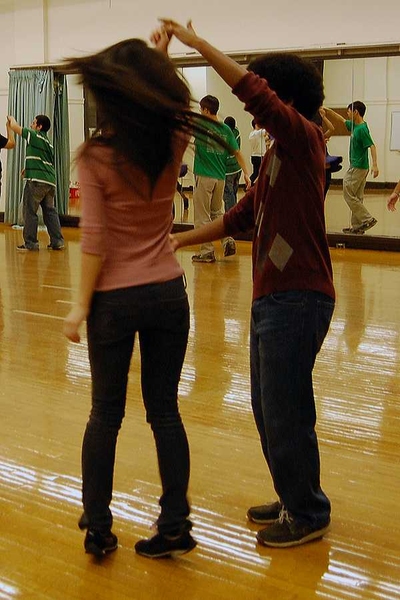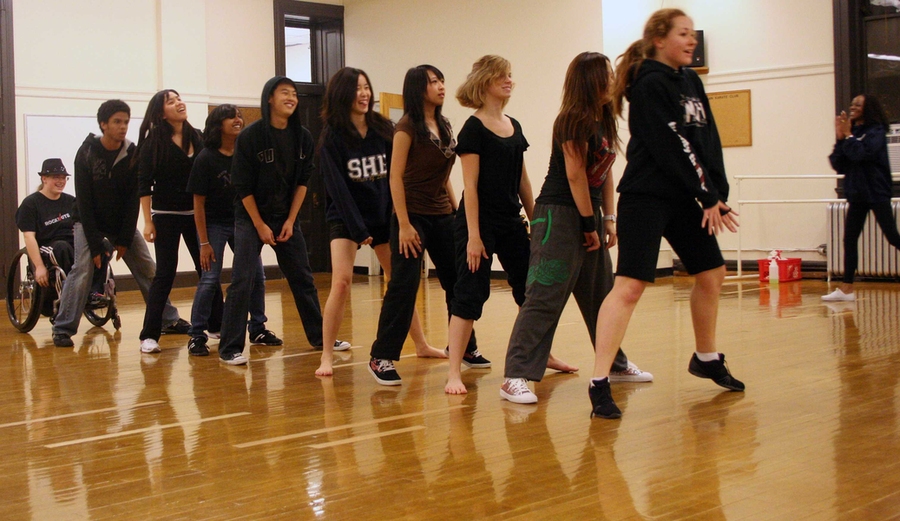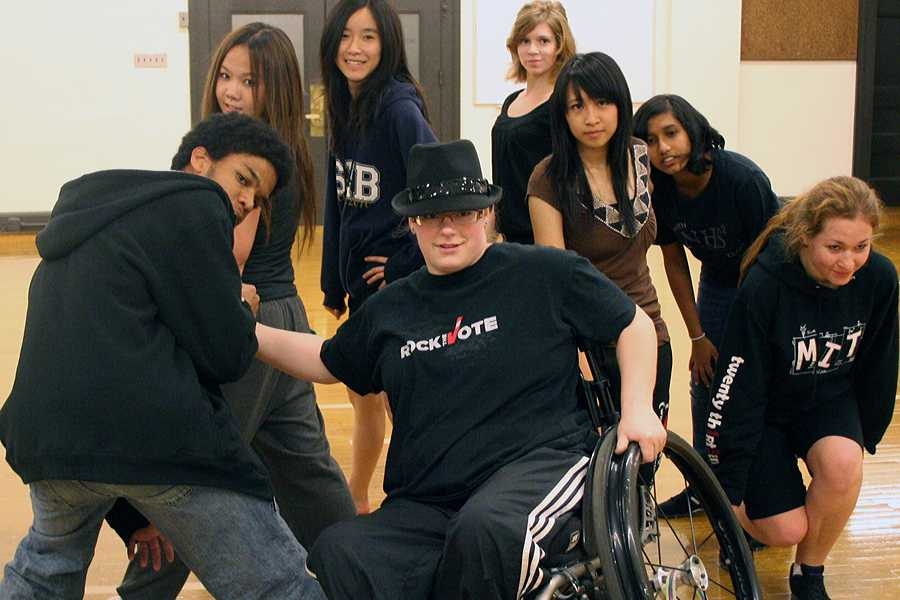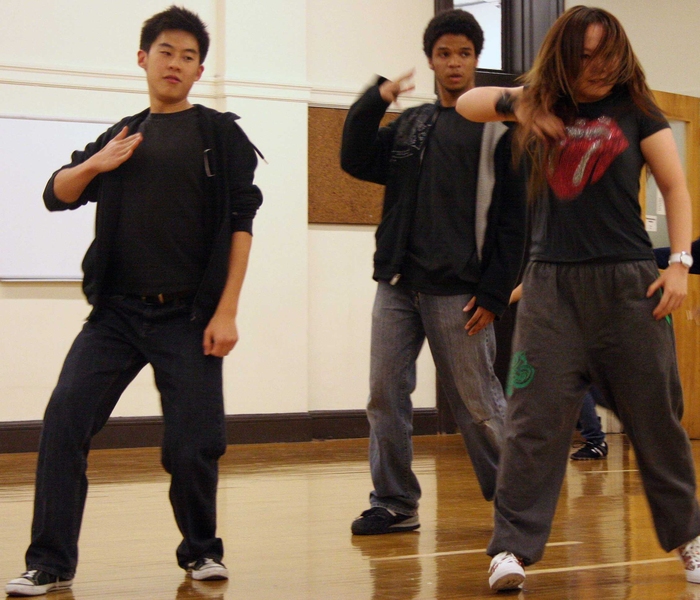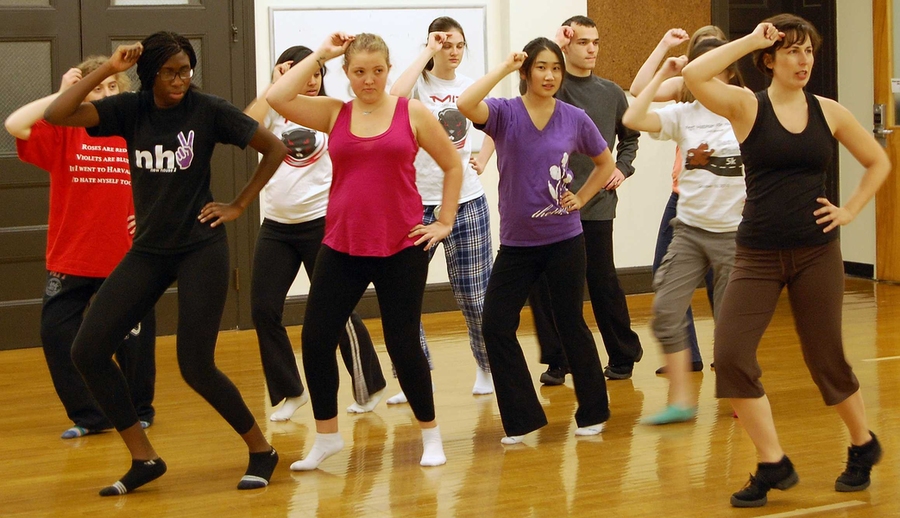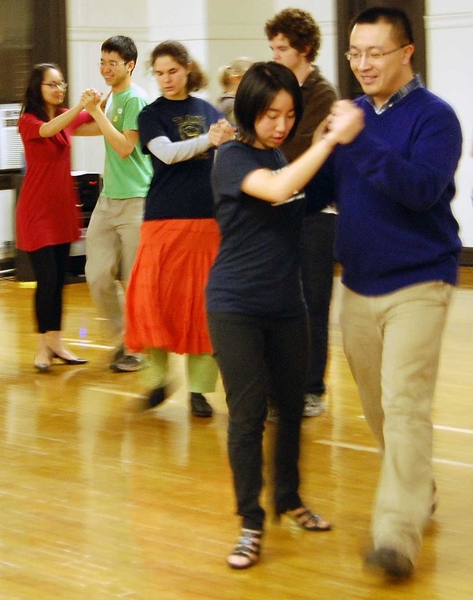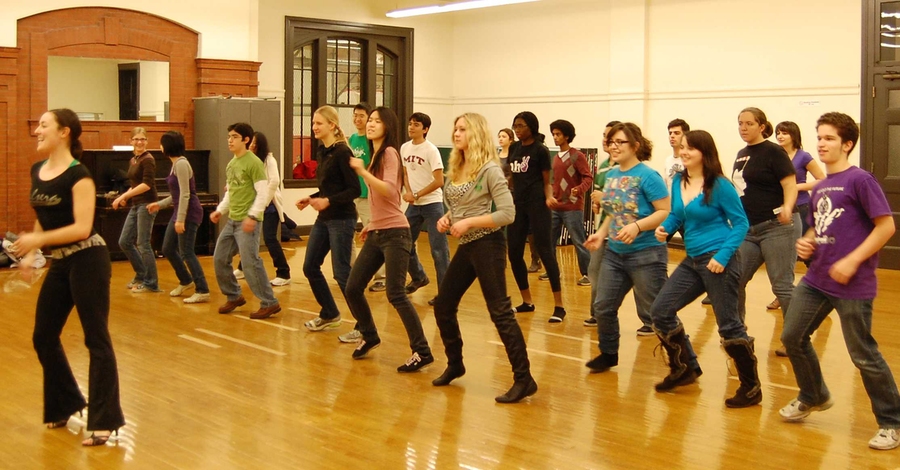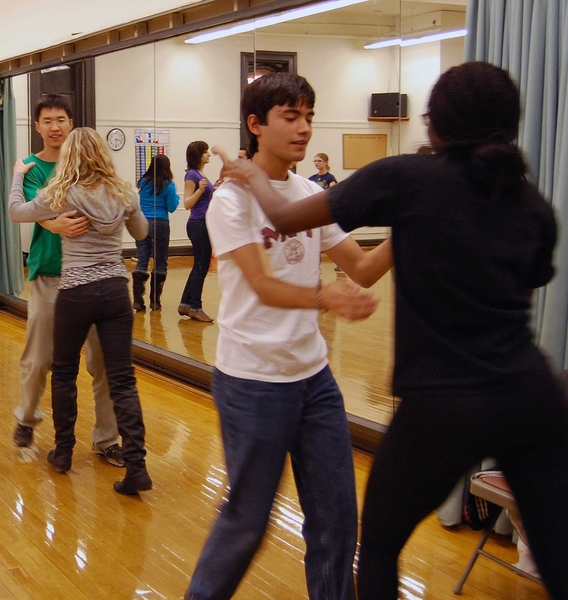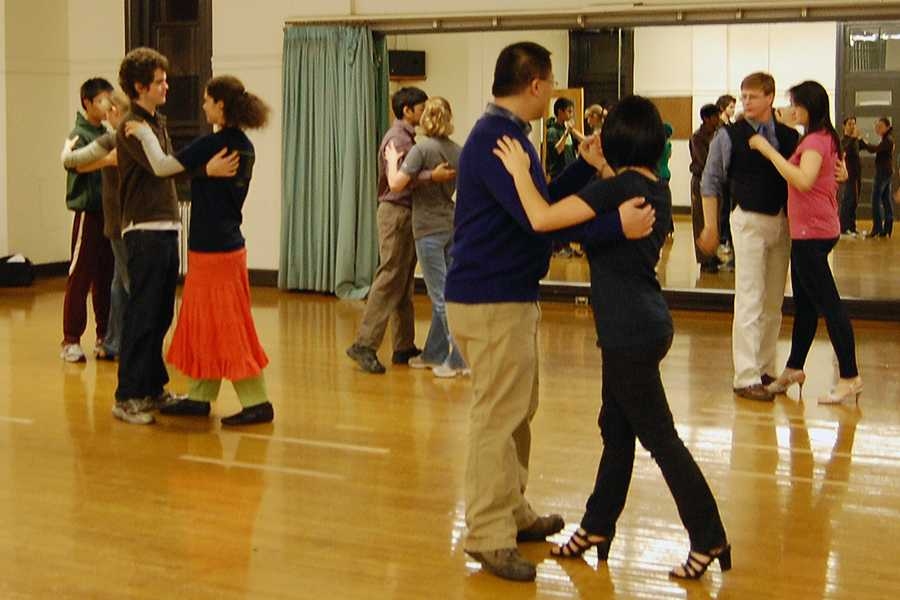The lights are dimmed in the dance hall and music fills the air — a slow song, perfect for a waltz. Young men and women politely approach each other, pair off, and begin to twirl on the dance floor. Watching the scene unfold is like stepping back in time, but it’s not 1911, it’s 2011, in MIT’s T-Club Lounge at ballroom dance class.
Perfect for beginners, the class is part of MIT’s Physical Education (PE) program. Students seeking to fulfill their PE requirements — or who just want to be ready for weddings, state dinners or music videos — can learn ballroom dance, hip hop, jazz, swing, salsa, tango, belly-dancing, and even Israeli folk dance.
“By taking Physical Education classes, we hope students find something they enjoy that may turn into a lifelong hobby,” said Meredith Volker, Physical Education Program Coordinator.
The Physical Education program increased its dance course offerings this year due to survey feedback and a high demand for the classes. Indeed, visit DuPont gym or the Student Center on any weeknight, and you’ll see rooms filled with students dancing for class or as part of a club.
“The class is a nice break from psets, and I like dancing so much that I even practice in my room,” said junior Hannah Johnsen, a student in the hip-hop class.
And dance steps are not the only things students learn. Ballroom dance instructor Tom Moore teaches the importance of good breath and good manners. “I always have to teach the students that you don’t just grab a partner’s hand and drag them across the room,” Moore said. “You should hold out your hand, politely ask for the dance, and when the dance is over, you thank them.”
By day, Moore is a middle-school math teacher, by night a ballroom dancer. His first experience with MIT was teaching the waltz to a Nobel Prize winner: although dancing is not the first thing people think of when winning a Nobel Prize, it turns out to be quite an important part of the banquet.
Moore is just one of the nine instructors who teach Physical Education dance classes at MIT. Most have day jobs, but teach the classes because of their love for dance. Salsa instructor Jen Earls even takes students on optional field trips to salsa clubs in Cambridge and Boston, in addition to the required classes, so that the students — like any good scientists or engineers — can take what they learned in class and apply it out in the field.
Registration for Quarter 4 courses begins Wednesday, March 9. Classes fill up quickly, so it’s important to register early. To learn more about the dance offering and Physical Education, go to http://mitpe.com/
Perfect for beginners, the class is part of MIT’s Physical Education (PE) program. Students seeking to fulfill their PE requirements — or who just want to be ready for weddings, state dinners or music videos — can learn ballroom dance, hip hop, jazz, swing, salsa, tango, belly-dancing, and even Israeli folk dance.
“By taking Physical Education classes, we hope students find something they enjoy that may turn into a lifelong hobby,” said Meredith Volker, Physical Education Program Coordinator.
The Physical Education program increased its dance course offerings this year due to survey feedback and a high demand for the classes. Indeed, visit DuPont gym or the Student Center on any weeknight, and you’ll see rooms filled with students dancing for class or as part of a club.
“The class is a nice break from psets, and I like dancing so much that I even practice in my room,” said junior Hannah Johnsen, a student in the hip-hop class.
And dance steps are not the only things students learn. Ballroom dance instructor Tom Moore teaches the importance of good breath and good manners. “I always have to teach the students that you don’t just grab a partner’s hand and drag them across the room,” Moore said. “You should hold out your hand, politely ask for the dance, and when the dance is over, you thank them.”
By day, Moore is a middle-school math teacher, by night a ballroom dancer. His first experience with MIT was teaching the waltz to a Nobel Prize winner: although dancing is not the first thing people think of when winning a Nobel Prize, it turns out to be quite an important part of the banquet.
Moore is just one of the nine instructors who teach Physical Education dance classes at MIT. Most have day jobs, but teach the classes because of their love for dance. Salsa instructor Jen Earls even takes students on optional field trips to salsa clubs in Cambridge and Boston, in addition to the required classes, so that the students — like any good scientists or engineers — can take what they learned in class and apply it out in the field.
Registration for Quarter 4 courses begins Wednesday, March 9. Classes fill up quickly, so it’s important to register early. To learn more about the dance offering and Physical Education, go to http://mitpe.com/
